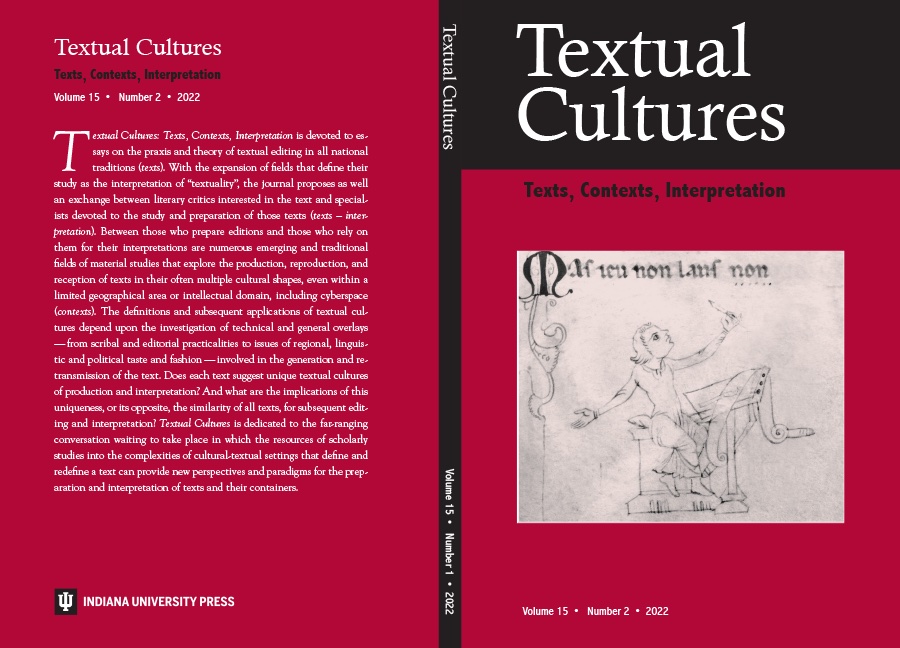The Politics of the Page Recontextualizing Willa Cather, Zora Neale Hurston, Gwendolyn Brooks, and Una Marson
Main Article Content
Abstract
This essay argues that attending to the bibliographic codes of early and multiple versions can enhance our understandings of the material forms of texts in the ways that George Bornstein modeled in Material Modernism. Focusing on modernist women’s complex engagements with print cultures, the essay analyzes pages from Willa Cather’s novel The Professor’s House, Zora Neale Hurston’s short story “Sweat”, Gwendolyn Brooks’s sonnet “the progress”, and Una Marson’s poem “Little Brown Girl”. These texts are most widely available in editions that place their richest print contexts “under erasure”. This essay argues that these kinds of material analyses can be used to center the work of Black women modernists as these approaches can enrich the research and teaching of less canonical texts without as many versions.
Downloads
Article Details
Authors who publish with this journal agree to the following terms:
- Authors retain copyright and grant the journal right of first publication with the work simultaneously licensed under a Creative Commons Attribution License (see:http://creativecommons.org/licenses/by/3.0/us/) that allows others to share the work with an acknowledgment of the work's authorship and initial publication in this journal.
- Authors warrant that their submission is their own original work, and that they have the right to grant the rights contained in this license. Authors also warrant that their submission does not, to the best of your knowledge, infringe upon anyone's copyright. If the submission contains material for which an author does not hold the copyright, authors warrant that they have obtained the unrestricted permission of the copyright owner to grant Indiana University the rights required by this license, and that such third-party owned material is clearly identified and acknowledged within the text or content of their submission.
- Authors are able to enter into separate, additional contractual arrangements for the non-exclusive distribution of the journal's published version of the work (e.g., post it to an institutional repository or publish it in a book), with an acknowledgment of its initial publication in this journal.
